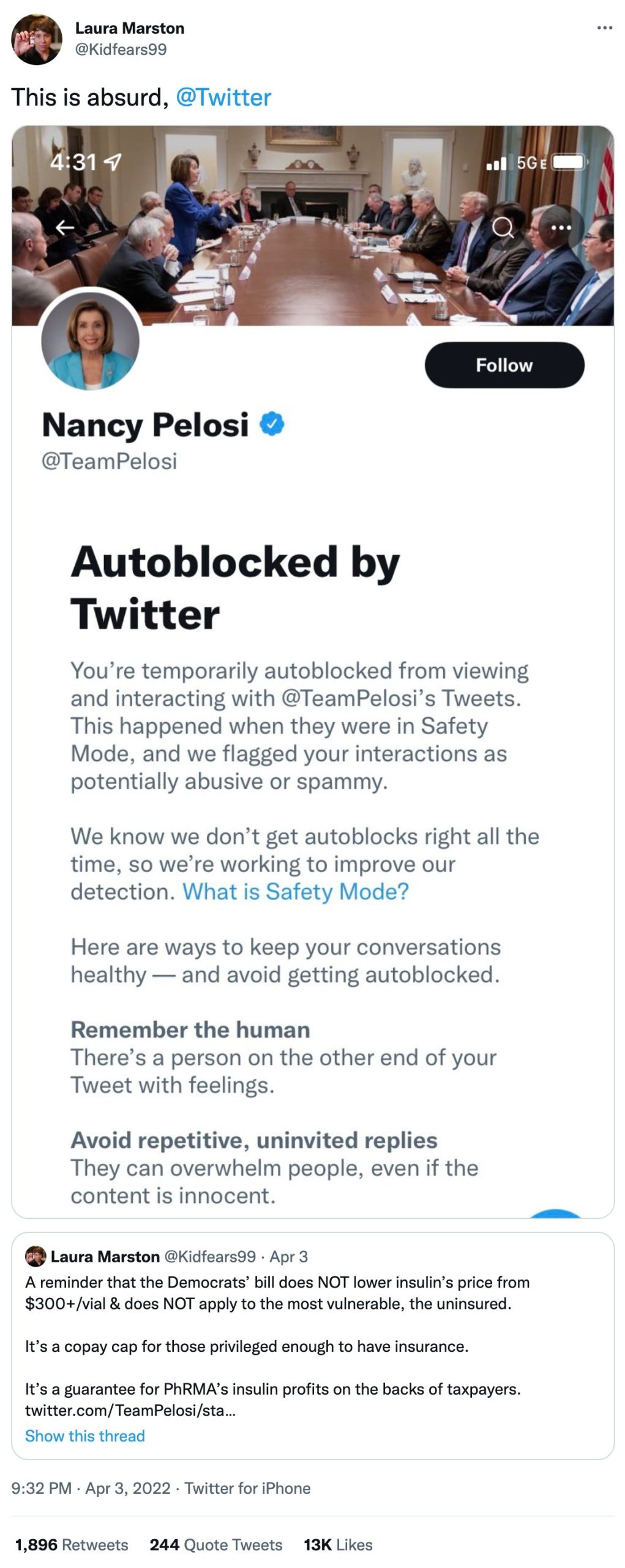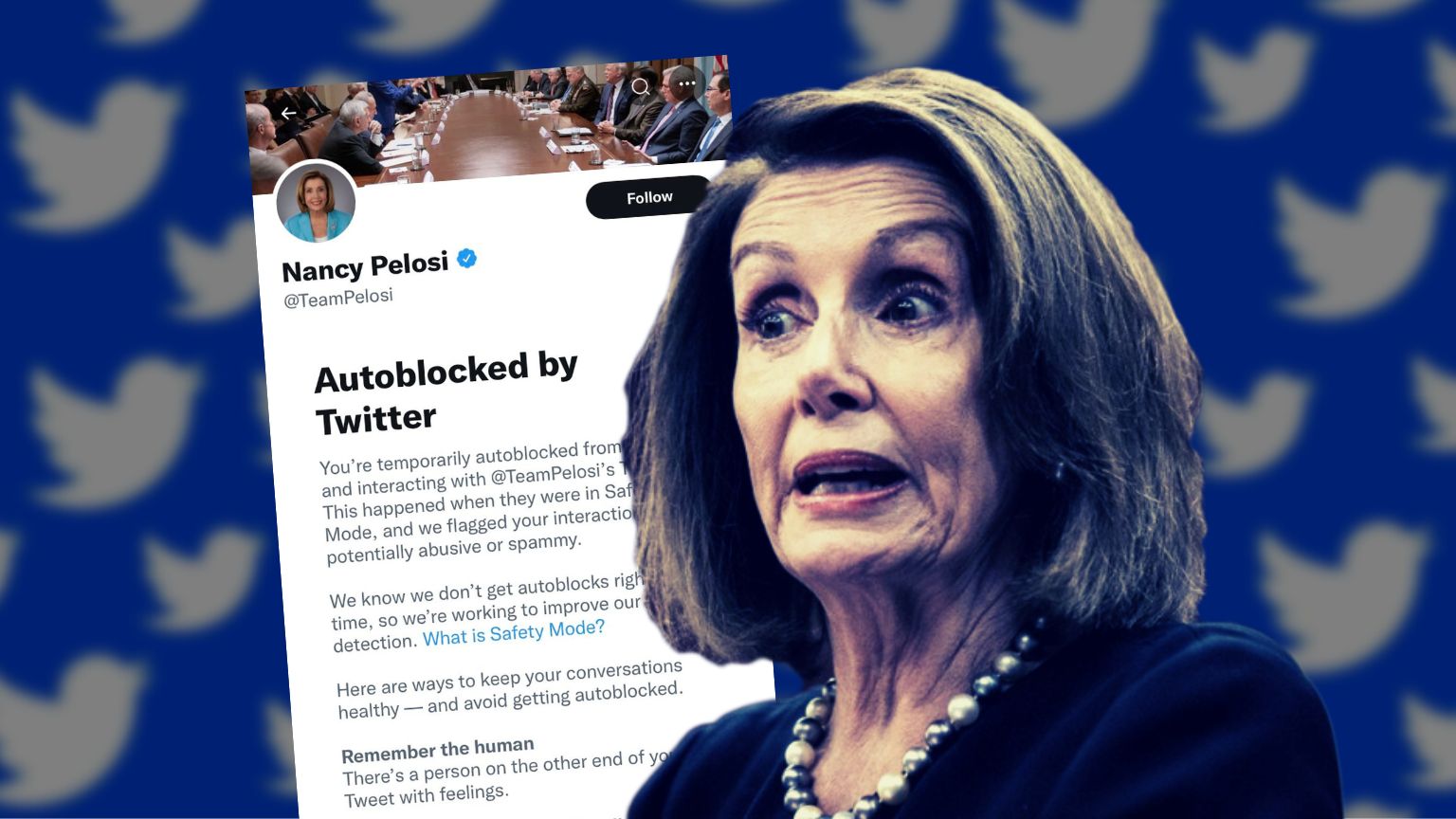Twitter is a “social” network that is paradoxically becoming ever more insular and anti-social – apparently, all in a bid to “protect” users from one another. This seems to be the idea behind testing new features such as the one called “Safety Mode,” that includes something called, “autoblock.”
At some point, the question might start arising in the minds of some, or even many, people: why even use a platform that you consider to be so potentially dangerous that it has to implement such a granular and complex system of separation and prevention of access to content and accounts?
But at this time, Twitter is still widely used and marching on its chosen path. And, right now, the “autoblock” is producing effects like a user getting blocked from viewing the profile of a public servant – in this case, that of House Speaker Nancy Pelosi.
While the problem has affected many, it was Laura Marston, an advocate for lowering the cost of insulin for diabetes sufferers, that most recently found her account blocked from highlighting problems with a recent bill that Marston feels falls short.

Those affected by the issue not only can’t comment on the politician’s tweets but they are also not even allowed to see them.
The Twitter notice that popped up instead of the Pelosi profile said that the user is temporarily blocked from interacting with the account’s tweets because “they were in Safety Mode” – while Twitter flagged previous interactions as “potentially” abusive or spammy.
The notice goes on to state that the social media company is aware “autoblocks” don’t work as intended all the time – another way of saying that flimsy automated algorithms and/or unreliable third party fact checkers are once again used to carry out the “Safety Mode” goals, and will highly likely be getting things wrong.
The “autoblock” feature was first announced in September, while the testing started last month. Twitter says the goal is to block what it determines to be “potentially” harmful interactions. The whole thing seems to fall under the category of restrictions on user communications that are not in fact prohibited by Twitter’s own rules, but that the site would still rather suppress.
While introducing “autoblock,” Twitter said that the decision to impose it against users is done by the company itself, not by the users who have put themselves in “Safety Mode.”
Meanwhile, “autoblocks” last seven days, and prevent people from interacting with accounts, seeing their tweets, following, or DM-ing them.













